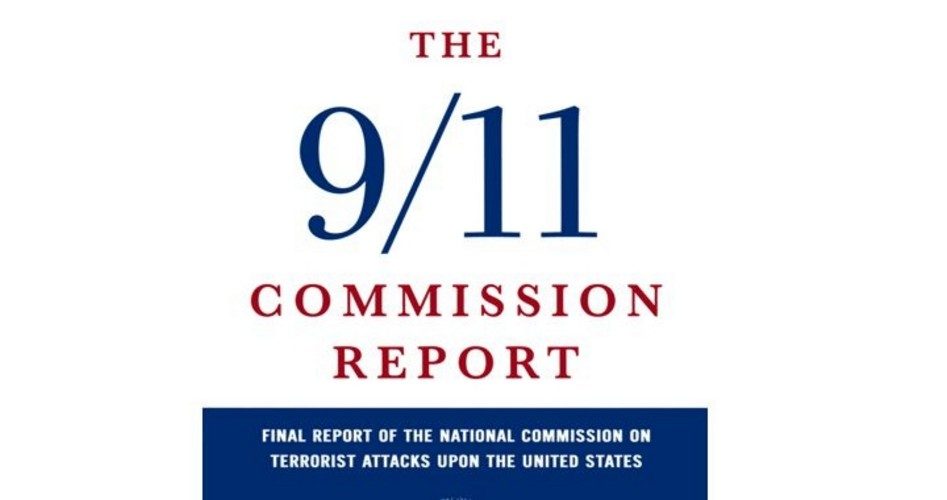
On July 15, Congress finally released the 28 classified pages of the famous 9/11 Commission Report. Many voices have long called for this declassification and release, particularly former Democratic Florida Governor (1979 to 1987) and U.S. Senator (1987 to 2005) Bob Graham, who had been trying since 2003. Graham was chairman of the Senate Select Committee on Intelligence and co-chair of the bipartisan joint congressional inquiry into intelligence failures surrounding the 9/11 attacks that produced the report back in 2002.
Graham’s prime reason for working for the release of the 28 pages were his belief that a network of people — who were substantially from Saudi Arabia — supported the 9/11 hijackers while they were in the United States.
While the report’s newly released pages do not state conclusively that Saudi officials collaborated with the hijackers, it does cast suspicion on members of the Saudi government, including a member of the Saudi royal family, Prince Bandar bin Sultan.
While in the United States, some of the September 11 hijackers were in contact with, and received support or assistance from, individuals who may be connected to the Saudi government.
However, the report draws no conclusions from that statement, continuing:
It should be clear that this Joint Inquiry has made no final determination as to the reliability or sufficiency of the information regarding these issues that we found contained in FBI and CIA documents.
An NPR report about the 28 pages noted that one of the individuals scrutinized in the 9/11 Commission Report was Fahad al-Thumairy, who was a diplomat at the Saudi consulate in Los Angeles from 1996 to 2003.
Thumairy was also an imam at the King Fahd Mosque, in Culver City, California, where he may have met and provided assistance to two of the September 11 hijackers, noted the Commission Report.
NPR observed that investigators from the 9/11 Commission interviewed Thumairy in the Saudi capital of Riyadh in 2004, noting that no charges have ever been brought against him.
In our article in April (“Former Senator Says 9/11 Commission Report Implicates Saudis”), we cited a CBS News report that witnesses reported seeing two of the 9/11 hijackers, Nawaf al-Hazmi and Khalid al-Mihdhar (both of whom were Saudi nationals), at the King Fahd mosque in the company of Thumairy. Following 9/11, investigators into the attacks suspected Thumairy of having ties to terrorist activity, and in 2003, he was denied reentry to the United States.
We noted that during an interview on CBS News’ 60 Minutes program aired on April 10 called “28 Pages,” former Representative Tim Roemer (D-Ind.) said that Thumairy was “a very interesting person in the whole 9/11 episode of who might’ve helped whom — in Los Angeles and San Diego, with two terrorists who didn’t know their way around.”
Graham was also a guest on that program, during which correspondent Bob Kroft spoke with the former senator about another Saudi national, Omar al-Bayoumi, who received a paycheck from the Saudi government while being listed as an employee at a Saudi aviation contractor outside Los Angeles, although he apparently never showed up at that job.
When Kroft asked Graham if he believed that Bayoumi was a Saudi agent, and if so, why, the former senator said, “Well, for one thing, he’d been listed even before 9/11 in FBI files as being a Saudi agent.”
The connection between Bayoumi and Thumairy — who, as we noted, was seen in the mosque with two of the hijackers — was reported by CBS News as follows:
On the morning of February 1, 2000, Bayoumi went to the office of the Saudi consulate where Thumairy worked. He then proceeded to have lunch at a Middle Eastern restaurant on Venice Boulevard where he later claimed he just happened to make the acquaintance of the two future hijackers. [Emphasis in original.]
The statements made by Graham and Roemer were far from the first suggesting Saudi involvement in supporting the 9/11 hijackers. An article posted by The New American on February 5, 2015, cited a statement made under oath by Zacarias Moussaoui — the convicted terrorist who has been dubbed the missing “20th hijacker” in the 9/11 attacks — that members of the Saudi royal family were financially supporting al-Qaeda, the terrorist organization founded by 9/11 mastermind Osama bin Laden.
That article quoted a statement made by Graham: “I am convinced that there was a direct line between at least some of the terrorists who carried out the September 11th attacks and the government of Saudi Arabia.”
During a White House press briefing on July 15, after a reporter asked Press Secretary Josh Earnest if the administration thinks that “these 28 pages shed any important new light on the Saudi role in the attacks on 9/11,” Earnest replied, in part:
We do not….
But what you’ll find once you do have an opportunity to take a look at what has been redacted … is that it will confirm what we have been saying for quite some time, which is that this material was investigative material that was reviewed and followed up on by the independent 9/11 Commission that was formed outside of the U.S. government to take a look at the attacks of 9/11. And the conclusion of the 9/11 Commission is — or was, as they wrote — they found “no evidence that the Saudi government as an institution, or senior Saudi officials individually funded al Qaeda.”
Following up a few moments later, Earnest continued:
This information, even as it’s now publicly available, does not change the assessment of the U.S. government that there’s no evidence that the Saudi government as an institution, or senior Saudi officials individually funded al Qaeda.
The reporter then questioned that statement further:
Interesting how they use the expression “senior Saudi officials.” Does that mean to suggest that maybe there were some lower-level Saudi individual government officials that may have been involved in providing material support for those who were at least alleged to have been co-conspirators to the 9/11 attacks?
To which, Earnest replied:
I haven’t looked lately at the 9/11 Commission Report, but certainly that is a comprehensive document that was written to provide as much information as possible about what contributed to the attacks on 9/11.
In response to these White House denials of Saudi involvement, Amnesty International tweeted a critical observation: “We stand with survivors of this crime against humanity: They deserve justice and the whole truth.”
Despite the White House’s adherence to what has been the official U.S. government line since the Bush administration. Many people will not be satisfied with that position. A report in Britain’s Guardian observed:
Even as the White House — and the Saudi ambassador to the U.S. — insisted that the 13-year-old report did not implicate senior Saudi officials in supporting al-Qaida, family members of the 9/11 victims who have long demanded the report’s release, as well as some of their congressional allies, said they believed the report demonstrated the need for a new investigation of a possible Saudi government role in the 2001 terror attacks.
One of the most damning parts of the 28 pages, notes The Guardian, is previously undisclosed information about the actions of a member of the Saudi royal family, Prince Bandar bin Sultan, who was Saudi Arabia’s ambassador to the United States for several years before and after 9/11, and was a close friend of President Bush.
The Guardian noted:
According to the report, at least $15,000 went directly from Prince Bandar’s bank account in Washington to the family of a Saudi expatriate, suspected of being a Saudi government spy, who organized a support network in California for two of the 9/11 hijackers while they were living in San Diego in the year before the attacks.
Related articles:
Graham Presses for Release of Report Implicating Saudis in 9/11 Attacks
Senate Passes Bill Allowing Families of 9/11 Victims to Sue Saudi Arabia
Classified 28 Pages of the 9/11 Commission Report Could Be Released Soon
Obama Meets Saudi King Amid Concerns Over Saudis’ 9/11 Role
Former Senator Says 9/11 Commission Report Implicates Saudis
Massaoui Statement Renews Suspicions of Saudi Involvement in 9/11 Attacks
Ron Paul Believes Bush Admin. Had Advance Knowledge of 9/11 Attacks

